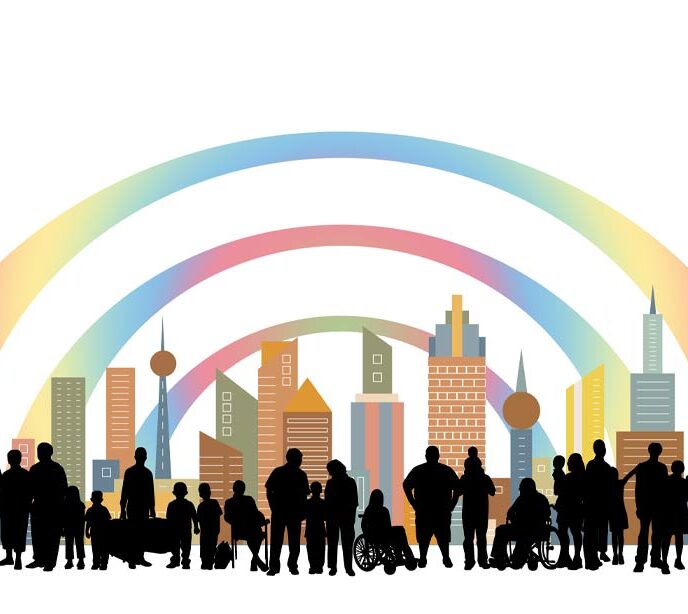Autism Spectrum Disorder and ADHD
Let’s explore the similarities and differences between Autism Spectrum Disorder and Attention-Deficit/Hyperactivity Disorder as well as other diagnoses that may be comorbid with autism.

What Is Autism?
Autism, also known as Autism Spectrum Disorder (ASD), is a developmental disorder that affects communication, behavior, and social interaction.
Here are some key points about autism:
- Diverse Spectrum: Autism is a spectrum disorder, meaning it manifests differently in each individual. Some people with autism have exceptional abilities in specific areas, while others face challenges in communication and social interactions.
- Social Communication Difficulties: People with ASD may struggle with understanding social cues, maintaining eye contact, and interpreting nonverbal communication. They might prefer routines and find changes distressing.
- Sensory Sensitivities: Many individuals with autism experience heightened sensitivity to sensory stimuli (such as lights, sounds, textures). This can lead to sensory overload or meltdowns.
- Special Interests: Autistic individuals often develop intense interests in specific topics. These interests can be a source of joy and expertise.
- Early Intervention Matters: Early diagnosis and intervention can significantly improve outcomes for children with autism. Speech therapy, occupational therapy, and behavioral interventions are essential.
Debunking Myths About Autism
Autism Is Not Caused by Vaccines: Numerous studies have debunked the myth that vaccines cause autism. The scientific consensus supports vaccination as safe and crucial for public health.
Supporting Autistic Individuals
Acceptance and Understanding: Acceptance and understanding are vital. Educate yourself about autism, challenge stereotypes, and promote inclusion.
Attention-Deficit/Hyperactivity Disorder (ADHD)
What Is ADHD?
ADHD is a neurodevelopmental disorder characterized by persistent patterns of inattention, impulsivity, and hyperactivity. Here’s what you need to know:
Three Subtypes:
- Inattentive Type: Difficulty focusing, organizing tasks, and following through.
- Hyperactive-Impulsive Type: Restlessness, impulsive behavior, and difficulty waiting.
- Combined Type: A combination of inattention and hyperactivity-impulsivity.
Challenges in School and Work: Individuals with ADHD may struggle with academic tasks, time management, and maintaining attention during lectures or meetings.
Treatment Options
- Behavioral Therapy: Helps develop coping strategies and organizational skills.
- Medication: Stimulants (like methylphenidate or amphetamine) can improve focus and impulse control.
Myths and Facts About ADHD
- Myth: ADHD is just an excuse for laziness.
- Fact: ADHD is a neurobiological condition that requires understanding and support.
Supporting Individuals with ADHD
Structured Environment: Clear routines, visual schedules, and minimizing distractions can be helpful.
Patience and Compassion: Understand that impulsivity and forgetfulness are part of the condition.
ADHD and ASD
ADHD (Attention-Deficit/Hyperactivity Disorder) and autism (Autism Spectrum Disorder, ASD) can indeed be comorbid. Let’s explore this further:
Overlap and Co-Occurrence
Research suggests that there is a significant overlap between ADHD and autism.
Some studies estimate that 30-80% of individuals with autism also exhibit symptoms of ADHD.
Conversely, a substantial number of individuals with ADHD may also display traits associated with autism.
Shared Features
- Both conditions involve difficulties in attention, focus, and impulse control.
- Social communication challenges are common in both ADHD and autism.
- Language delays.
- Fixated interests or topics.
- Sensory sensitivities and repetitive behaviors can be present in both groups.
Differentiating Factors
While there are similarities, there are also distinct features that help differentiate the two:
- ADHD: Primarily characterized by attention difficulties, impulsivity, and hyperactivity.
- Autism: Involves broader social communication difficulties, restricted interests, and repetitive behaviors.
Clinical Assessment
Diagnosing comorbidity requires a thorough clinical assessment by a qualified professional.
It’s essential to consider the individual’s unique presentation and symptoms.
Treatment Considerations
When both conditions coexist, treatment planning becomes more complex.
Tailored interventions may address specific challenges related to attention, social skills, and sensory issues. Some of the behavior therapy strategies to address ADHD symptoms in ABA include:
- Social skills groups
- Alarms/Timers
- Breaking tasks into smaller parts
- Meditation and mindfulness
- Organization strategies (picture scheduled, limiting clutter)
- Preferential seating
- Token boards for task completion.
- Increased breaks
- Clear and consistent consequences across caregivers/intervention team
Other Comorbid Diagnoses
Some of the most common comorbid diagnoses with Autism Spectrum Disorder include:
- ADHD
- Anxiety
- Depression
- Intellectual Disability
- Genetic Disorders
- Other Mood Disorders
Other Problems Frequently Diagnosed
There are 297 disorders in the DSM5. 85% of children with ASD have another psychiatric disorder. Many with ASD have other problems outside of comorbid diagnosis such as:
- Seizure/Epilepsy
- GI Disorders
- Feeding/Eating Challenges
- Sleep Disorders
- Gender Variance
Remember, both autism and ADHD contribute to the rich tapestry of human diversity. Let’s embrace neurodiversity and create a world where everyone feels understood and valued.
Together, we can unlock your child’s potential
Related News

06/11/2025
Overcoming Stereotypes
Autism stereotypes are common and can have significant social consequences for autistic children. Misconceptions hinder the acceptance and inclusion of autistic children. Challenging these stereotypes is vital for creating a more understanding and supportive society. Challenging Common Autism Stereotypes When people hear the word “autism,” they often imagine a narrow set of images, like the […]

06/11/2025
What’s Next After ABA Therapy?
There are a number of reasons why an autistic child might stop ABA therapy, and one is that they have reached their goals. In this article, we take a look at what parents can expect going forward. What Are the Next Steps After ABA Therapy? As a parent, you only want what’s best for your […]

06/11/2025
Do Babies with Autism Smile?
We take a look at the importance of early intervention, some of the milestones for parents to look out for, and the more common signs of autism in babies. Do Babies with Autism Smile? Watching your baby grow is an exciting time, certainly one of life’s quiet wonders. From those first sleepy stretches to the […]


